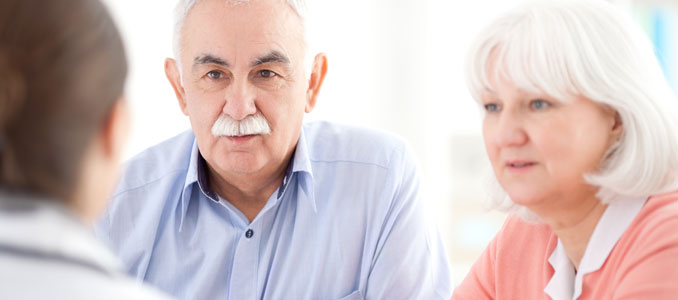HCG with Testosterone Therapy – Why the Combination?
Your body is a complex piece of machinery with many moving parts and chemicals. The process of diagnosing a breakdown is highly detailed, and the repair is a comprehensive treatment plan customized to your personal needs. That is why hormone replacement doctors sometimes prescribe HCG with testosterone therapy. No two people experience low testosterone in the same way, and the treatment plan prescribed for one individual may not be the same as for someone else.
The reason HCG is used with testosterone therapy is to increase testosterone production in the testicles. First up, let us go ahead and explain why testosterone therapy is needed. As the body ages, its production of crucial chemical messengers (hormones) can start to decline. One such hormone is testosterone. In normal circumstances, an adjustment phase would allow this decrease to occur without any problems. Unfortunately, not all situations fall into that “normal” category. Some people exhibit adverse effects associated with Low T. When that happens, supplemental testosterone therapy increases the amount of available testosterone in the bloodstream for the body to use.
The discussion of HCG vs. testosterone therapy occurs if there is a concern that testosterone therapy may stop the testes from producing enough testosterone on their own. That is why some patients will receive HCG shots to use once they complete their testosterone cycle. The HCG will stimulate the testes into producing increased testosterone. Some patients may not even receive testosterone, but may be prescribed HCG in its place, depending on their needs.
Why Are Other Medications Used with Testosterone and HCG?
The use of HCG with testosterone replacement therapy is not exclusive. Understanding how testosterone works once in the bloodstream helps with this process. Much of the testosterone circulating in the body is bound up to other chemicals. Only that which is free and unbound is available to exert the necessary effects on muscles, brain function, bones, metabolism, and other areas. There is something else that can keep the free testosterone from doing its jobs.
Some of the free testosterone in the body undergoes a conversion process transforming it into estradiol (estrogen). Too much estradiol increases belly fat, which then produces the enzyme aromatase that is responsible for the testosterone to estrogen conversion. In addition to using HCG along with testosterone therapy, the hormone replacement therapy specialist will also prescribe Anastrazole capsules to prevent the conversion process.
The use of Anastrazole and HCG with testosterone replacement therapy helps to bring balance back to a man’s body. Clomiphene is used along with the HCG after testosterone therapy end to help restore proper testosterone production. Some men will use HCG during their testosterone therapy. This is a subject to discuss in detail with your HRT provider.
How Do HCG and Anastrazole Reduce Testosterone Side Effects?
One of the biggest fears of hormone replacement therapy is adverse reactions. Testosterone therapy has been used for the treatment of Low T in men for many decades. Its safety has a long track record. That being said, there are ways to minimize the risks that can come from testosterone use, just as with any other type of medication.
The first way to prevent HCG & testosterone therapy side effects is to find a reputable and reliable hormone specialist, such as the ones here at National HRT. You want a doctor with extensive experience treating Low T and other hormone deficiencies. That way you can rest assured that you are getting knowledgeable help with restoring balance to the testosterone levels in your body through the use of proper adjunct medications.
The calculation of the HCG testosterone replacement dosage requires blood analysis, physical examination, and a thorough understanding of the individual’s medical history and current state of health. The severity of the symptoms associated with Low T is looked at, as well.
The proper determination of the HCG dosage with testosterone therapy is crucial to ensuring that a man will still produce testosterone in his testes. HCG can also help when there are fertility issues at stake. Testicular atrophy is another reason why doctors sometimes prescribe HCG to their patients. This helps reduce the side effect of potential infertility sometimes associated with testosterone therapy that can interfere with fertility. Doctors who do not specialize in hormone replacement run the chance of increasing the risk of certain side effects because they do not always know that these adjunct medications are required with testosterone replacement therapy.
Since higher levels of testosterone make it possible for an increased amount of estrogen conversion, Anastrazole will minimize this process, preventing an increase in belly fat associated with estrogen dominance. This will reduce the amount of aromatase released by the belly fat.
- Transl Androl Urol. 2018 Jul; 7(Suppl 3): S348–S352. Indications for the use of human chorionic gonadotropic hormone for the management of infertility in hypogonadal men John Alden Lee and Ranjith Ramasa. 2018 Jul; 7(Suppl 3): S348–S352.
- The Use of HCG-Based Combination Therapy for Recovery of Spermatogenesis after Testosterone Use: HCG-Based Therapy Assists Spermatogenesis Recovery Article in Journal of Sexual Medicine 12(6) · April 2015 with 201 Reads Source: PubMed
- The Use of HCG-Based Combination Therapy for Recovery of Spermatogenesis after Testosterone Use Evan P. Wenker, BS James M. Dupree, MD Gavin M. Langille, MD Jason Kovac, MD Ranjith Ramasamy, MD Dolores Lamb, Ph.D. Jesse N. Mills, MD Larry I. Lipshultz, MD



